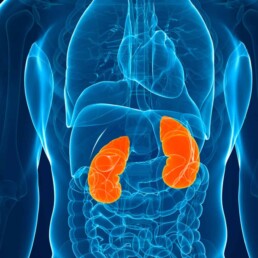In December 2012, the international guidelines for the management of chronic kidney disease (also known as KDIGO) stated that restricting protein intake in patients with kidney disease remains controversial. Here we will discuss the case against animal protein for kidney disease.
By Majd Isreb, MD, FACP, FASN, IFMCP
The Case against animal protein for kidney disease
Interestingly, a low-protein diet was suggested as an approach for the treatment of kidney disease as early as 1869. It was thought that lowering protein intake leads to lower nitrogen waste products and lessens the burden on the kidneys. However, there have always been concerns about causing malnutrition and muscle wasting with lowering protein intake in kidney patients.
This was complicated after a large study in the nineties demonstrated that there is no benefit from a low-protein diet. Yet, that study was limited by its short follow-up on a disease that progresses over years and by excluding insulin-dependent diabetics and the use of high-tryptophan-containing keto acid supplements in patients with low protein intake. Nevertheless, it managed to cast doubt in the mind of many kidney doctors.
In this blog, I am going to explain why an excessive amount of animal protein is injurious to the kidneys and how to mitigate that.
Animal protein and kidney blood flow
An earlier hypothesis was that high protein intake might increase the burden on the diseased kidneys and leads to increased blood flow to the kidneys and pressure on the filtering units. This may lead to an increased generation of inflammatory molecules that fastens the progression of kidney disease. On the opposite, restricting protein intake in kidney patients improved blood pressure control, blood sugar control, and cholesterol control.
Animal protein and dietary acid load
In addition, there has been recent attention to blood acidity and its effect on the kidneys. Blood acid is a natural product of the metabolism of our food. Some foods produce a lot of acids and some produce less acid. The amount of blood acid produced by certain food is referred to as “dietary acid load.” A higher dietary acid load has been found to induce several injurious processes in the kidneys and leads to faster progression of kidney disease.
Indeed, supplementation with an alkali (Such as sodium bicarbonate, potassium citrate, or baking soda) has been found to slow down the progression of kidney disease. Natural alkali producers are fruit and vegetables, and studies have shown that adding 4-5 additional servings of fruit and vegetables to the standard American diet can decrease the acid burden on the kidneys.
On the other side, animal proteins produce some of the highest dietary acid load. The average American diet delivers approximately 15-17% of its energy as protein (mostly animal proteins) and is low in potassium-rich fruit and vegetables. For more information, read our blog about dietary acid load and CKD.
Animal protein and the gut microbiome
Furthermore, excessive animal protein intake may also lead to the predominance of bad bacteria in the gut. One of the most important regulators of gut microbiota (the balance of bacteria in the gut) is the type and availability of various nutrients in the diet, especially the ratio between undigested carbohydrates and proteins.
Healthy bacteria in the gut are important to maintain the intestinal barrier and prevent the seepage of endotoxins into the bloodstream. If the diet is rich in undigested carbohydrates such as fibers, proteins are mainly used for the growth of good bacteria that ferment carbohydrates. These bacteria produce short-chain fatty acids that provide food to the gut cells.
But when the diet has more protein than fibers, bad bacteria that ferment protein grow, leading to potentially toxic byproducts that get absorbed into the bloodstream and can lead to inflammation and further kidney injury. These byproducts are called uremic retention molecules (URM). For more information, read our blog on URM.
Animal protein and phosphorus intake
Animal proteins are also often associated with phosphorus in the diet. Phosphorus has many deleterious effects on the body and may lead to faster progression of CKD and worsening bone damage. Phosphorus can lead to inflammation in the blood vessels. It binds with calcium and deposits in various body tissues, including the skin, heart, and blood vessels. Excessive phosphorus can lead to the over-production of an inflammatory hormone that has been associated with heart disease and kidney disease.
There is no doubt that the literature strongly suggests that higher protein intake, particularly from animal sources, is associated with faster progression of kidney injury, and patients should consider decreasing their protein intake to 0.6 g/kg/day. Restricting protein intake below this level should be supplemented by essential amino acids or ketoacids.
References:
The effects of dietary protein restriction and blood-pressure control on the progression of chronic renal disease. Modification of Diet in Renal Disease Study Group. N Engl J Med. 1994, 330:877-84.
Dietary Protein Suppresses Feedback Control of Glomerular Filtration in Rats. J. Clin Invest. 1985, 75: 558-568.



